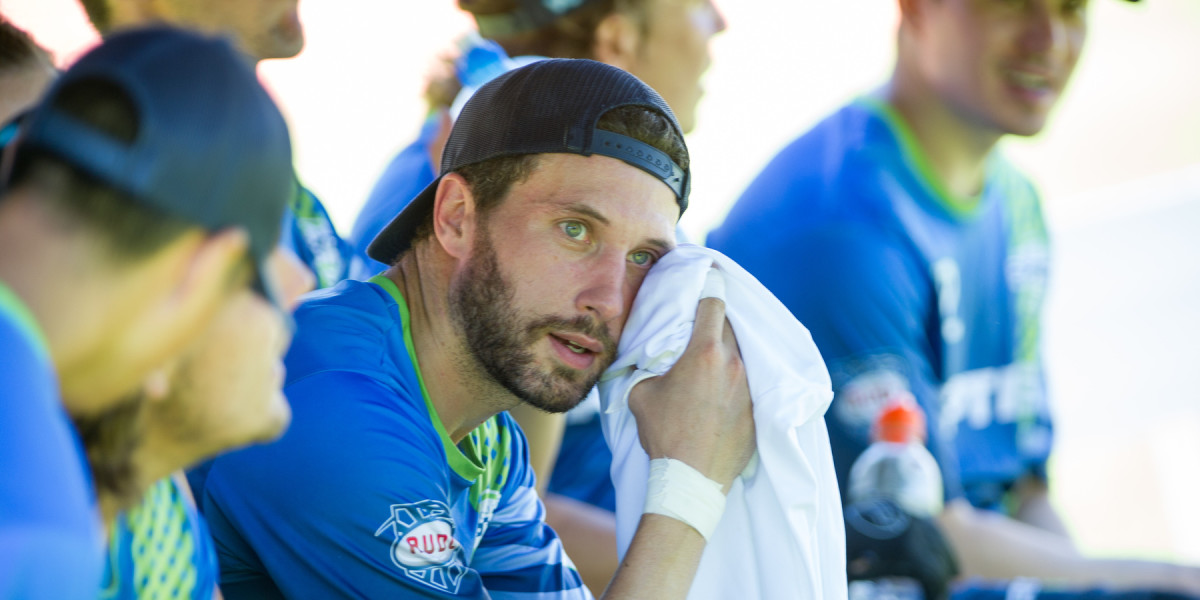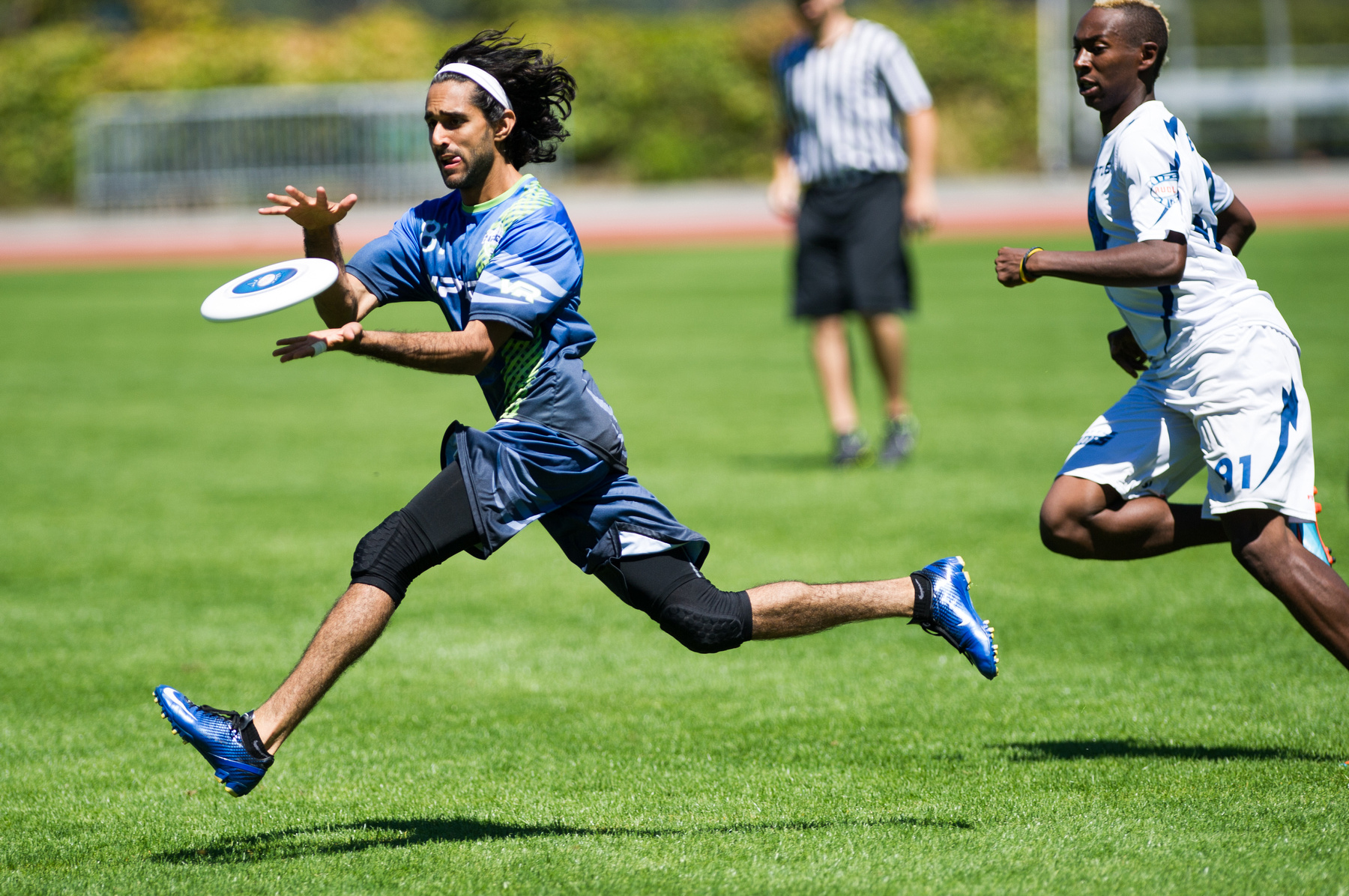 UltiPhotos.com" />
Jeff Bell - UltiPhotos.com
UltiPhotos.com" />
Jeff Bell - UltiPhotos.com
“We are what we repeatedly do.” — Aristotle
As a rule, athletes spend much more time in practice than in real competition. By competition, in this sense, I mean both the goal and the test of your work: a mission-critical tournament, an important game, or maybe even a tryout. Like a lot of us, you likely think of yourself as a “competitor” because you compete, and you train to compete. Even so, because words have power, forgive me when I describe you more accurately for what you truly are: a “practicer.” If there is one thing I hope to pass on, it is that taxonomic shift; strive above all else to become a great practicer.
Because you spend time on it, and because you repeat it, practice breeds habits both mental and physical. Celebrated academics like Daniel Kahneman have argued that expert decision-making comes from an subconscious assembly of experience, associative memory, and intuitive reflex. In the same spectrum, military habit-trainers like Col. David Grossman have written extensively on the effects of repetition on decisions, reflex, and conditioned response. It should come as no surprise that decision-making, expertise, habit, and conditioning all share a common orbit, because the human body is not quite sophisticated enough to split hairs among them. As far as your mind and body are concerned, anything you repeat must be worth repeating, and they facilitate that without distinctions between good and bad.
Practice, therefore, is the nursery of habits. Some of them are desirable and we come to call them skills; others are badly fashioned or escape our notice, and they come to work against us. As Grossman warns, there is danger lurking in the habits we make: the side-effects.
“Know thyself.” — Greek proverb
I first noticed the power of habit when, as a new and nervous captain, I struggled to understand my team’s offense. Specifically, it would have been unremarkable if we were just consistently bad at offense; the fact that we were intermittently good at it frustrated and needled me to no end. The magically “good” offense showed skill, teamwork, and an intelligence beyond dumb luck, so what triggered its transient comings and goings mystified me. On a whim, it simply either unfolded beautifully down a sideline, or instead got hopelessly mired in endless variations of handler-resets.
The cutting drill de rigueur in Vancouver at the time of this story provides the key. This particular exercise repetitively pitted two pairs of players against each other in a contest of skill. The first cutter ran through the obligatory motions, and gained the disc — uncontested — a little upfield on the force side, as his defender then moved in to put on a mark. The second cutter — the man of the hour — then had to out-manoeuvre his defender and make himself open in front of the thrower for a big in-cut or a strike. We practiced such duels over and over until our minds and bodies ached, and we became very good at it. To this day, my memory is a blur of hundreds of such battles, and my muscles twitch to the ritual motions when I visualize them.
Alas, we never seriously addressed a very serious question: what if the mark wasn’t forcing to the sideline? We had trained two dozen cutters who were masterful at getting the disc on the open sideline. By God, we could slither the disc up to the endzone using just a fraction of the field! But the moment our momentum stalled, or if we had to swing to the opposite side…our offense entered unknown territory, and thereupon promptly derailed. I realized with sickening hindsight that we had diligently bred our greatest weakness in practice: three times a week, every week, eight months out of the year, with almost tragic determination and gusto.

Jeff Bell – UltiPhotos.com
“Whatever you would make habitual, practise it; and if you would not make a thing habitual, do not practise it, but habituate yourself to something else.” — Epictetus, c.100AD
Laying bare the moral of the story: study the habits you make. It would be very easy and relaxing to declare, “I don’t practice that drill, so I am safe,” but you would swiftly join the masses of the self-deluded. Drills of every kind exist to practice our responses to specific scenarios more often than they would by random chance. They therefore necessitate some contrived elements to repeat the scenario. The inconvenient truth is that every single drill is a habit-building machine by design, and not all those habits are desirable. Every single drill carries necessarily intended and unintended behaviours: the effect, and the side-effect. The science of a good practice is finding these side-effects, eliminating the ones you can, and randomizing the ones you cannot, before they become habit.
Scrutinize any routine, drill or exercise you follow, and treat it with unflinching suspicion, because it conspires to betray you. Note that it has a beginning, a middle, and an end; equivocally, behavioural psychologists would distinguish these phases by cue, habit, and reward. For a desired behaviour to activate in competition, it must be triggered by a recognizable cue. The cue might constitute a movement of the disc, a position on the field, or even a team gathering before a warm-up. The habit is the action that follows and which becomes a rote behaviour, whether mental or physical. The habit might be an execution of a personal skill, such as a throw, a team skill, like the use of a space, or a mental skill, such as the level of effort on defense. Lastly, the reward marks the end of a desired habit, and makes it desirable enough to repeat. The reward varies when uncontrolled: it can be as simple and honest as a compliment, and the satisfaction of ‘getting it right,’ or as insidious as the gratification of a risky throw. Also note that the reward marks the end of the programmed habit, which in many cases, may be woefully premature.
The three-phase model of habit formation, whilst crude, makes it easy to question your designs:
Cues
- Is the cue realistic?
- Is the cue for the desired habit one that you/players will see and act upon when it matters?
- Is it the same and only cue every time?
- Are there other possible cues that could come up where you would want this behaviour?
- Is there a similar (different position, different mark, different time) cue wherein you would want to train a very different behaviour?
Habits
- Is everyone participating in the exercise developing a desirable habit?
- Are both offense and defense encouraged to work at a desirable level?
- Which behaviours are unrealistic or undesirable? Can they be randomized so as not to become habitual?
Rewards
- Are you controlling the rewards?
- Are you consistently rewarding the habits that you want?
- Are you discouraging habits that you don’t want?
- Does the reward mark the end of a habit on a desirable note?
“It’s always in the last place you look.” — English proverb
At the 2015 Ultimate Canada Conference, I challenged my audience to form groups and to design drills to practice an endzone offense. Having paid attention to my talk, and with numerous qualified coaches among them, the audience already knew the common pitfalls of designing a practice. Each group showed their work, conscientiously addressing different mental states, different starting positions, starting off of dead discs, off of hucks, and off of approaches. They made sure the defense was always encouraged to work at in-game intensity. The rewards were kept (maybe too?) simple and straightforward: you can score a point, or you can get a block. I admired their work, listened to their reasoning, and then asked each of them, “What happens when there’s a turnover?” Nothing.
Every single painstakingly conceived set of drills put forward would have habitualized a team to forget to play defense on a change in possession. The oversight would likely have gone unnoticed (until the first tournament), because the other half of the team was not training to seize the opportunity either.
Everyone looked sheepish at their oversight, but I cannot claim any special intelligence; I’ve made the very same mistake, and paid for it. If I have any wisdom to share, it has only come from extensive practice.









Comments Policy: At Skyd, we value all legitimate contributions to the discussion of ultimate. However, please ensure your input is respectful. Hateful, slanderous, or disrespectful comments will be deleted. For grammatical, factual, and typographic errors, instead of leaving a comment, please e-mail our editors directly at editors [at] skydmagazine.com.